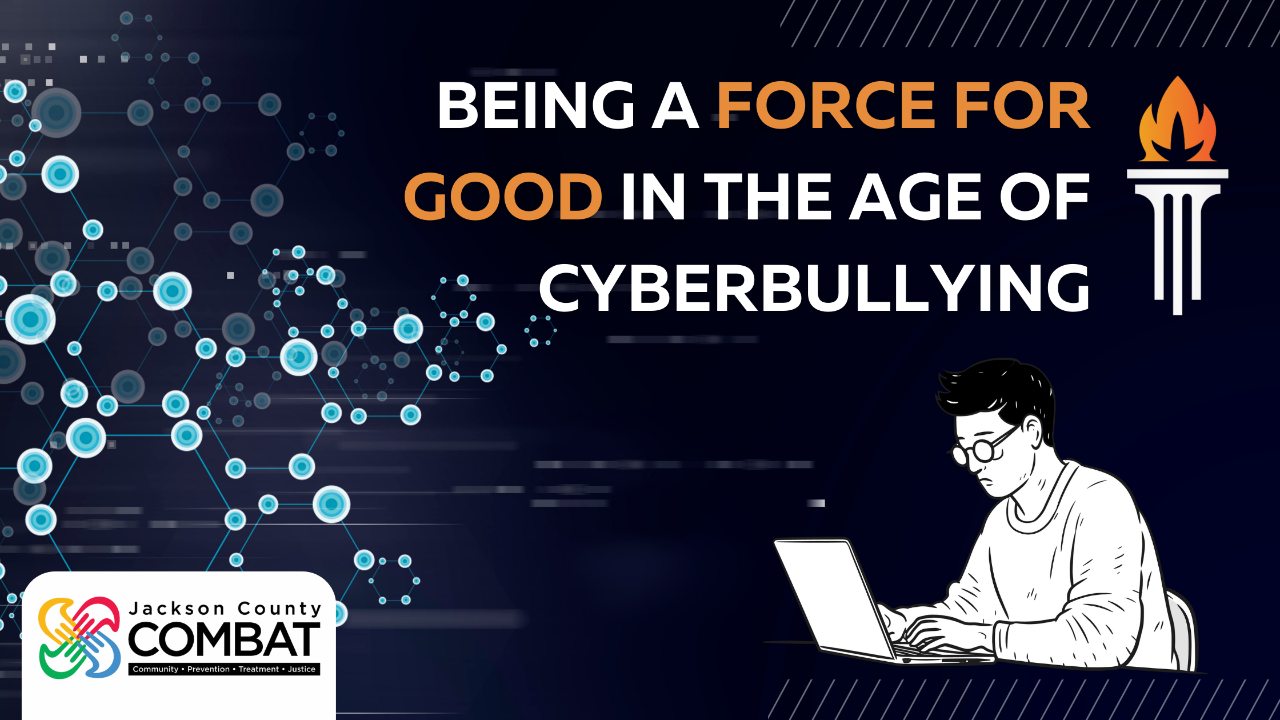The Age of Cyberbullying: Being a Force for Good
Jun 12, 2023
When we think of bullying, we primarily think of in-school interactions between the bully and the victim. These interactions are often public and if the bully isn't trying to hide their actions, it is easy to catch. However, we now live in an era of unprecedented access to the internet and the option of anonymity. What does this mean for young people? In this blog, we will examine the types of cyberbullying and ways we can be a Force for Good in each of these situations.
Cyberbullying comes in many forms.
- Public posts/stories
- Direct messages/texts
- Comments
- Online gaming communities
Young people are socially expected to have their entire lives on the internet. Their personality, interests, and information are often in plain view, and not just to those on their friends list. This provides a bully with loads of ammunition with which to attack and hurt a person. Unfortunately, privacy is not something that we think about until it is violated.
First Tip: Watch What You Post Online
It's incredibly important to think about the content you post online.
- Is it too much information?
- Does it reveal private things about myself, my family, or those close to me?
- Am I posting because I am feeling down and want someone to notice? Perhaps a direct message to a close friend would be better than a public post, story, or Snapchat.
- Be a Force for Good: reach out to a friend if you feel they have overshared on the internet and may be a target of bullying.
Second Tip: Cyberbullying Isn't Always Obvious.
It's not just negative comments about a person's looks, intelligence, or character. Sometimes a harmful post won't include any direct harmful messaging or name-calling, but will be outing or doxxing a person. Outing someone means to reveal something personal about them to other people without their consent. It is often used against LGBTQIA+ people, revealing their sexual identity in order to embarrass or ridicule them.
- It's important to not only refrain from revealing someone else's information, but to not interact or take part in another person outing someone.
- If a post is made to make fun of someone, report that post. Don't like, share, or comment on it.
- Be a Force for Good: if you see someone being outed online, reach out to them with kind words. Assure them, affirm them, and tell them you are on their side.
Doxxing is the act of revealing someone's demographic information, such as where they live or where they work, without their consent. Revealing this information leaves the victim vulnerable to not just bullies, but any person on the internet. The consequences of this are serious, for both the victim and the bully.
- Don't reveal your friend's information, such as where they live, hang out, or work. Not even as a joke.
- Be a Force for Good: Report doxxing. You can report it on the social media app where it was posted, and also report it to your school administration.
- Not sure who to tell when you see doxxing against you or someone else? Tell a trusted teacher, counselor, or parent. It doesn't have to be someone involved in the situation, but it does have to be an adult.
Third Tip: Watch for Impersonators.
It's very easy to be anonymous on the internet. Many social media sites don't verify their users. Meaning, they don't make sure that who you say you are is really who you are. It's important to recognize that the people you interact with on the internet may not be who they say they are. Impersonation is a form of cyberbullying. Bullies will sometimes try to gain your trust online by pretending to be someone you know, or someone you've never met. They will try to get you to reveal information about yourself, or even coerce you into sending photos of yourself.
- Don't send private pictures to anyone, even if you know the recipient well. Private pictures can easily be shared and spread to thousands of people in a matter of seconds. It's important to remember that what is posted online is permanent. Even if you eventually delete something, there is always a possibility that it was downloaded or duplicated before you erased it.
- Don't engage in private conversations with strangers online. Commenting or posting in a public forum is different, and visible to others. Private messaging should be avoided.
- Watch for fake accounts. If you feel that you or someone you know is being impersonated online, report it to the social media app, your parents, and your school administration.
- Be a Force for Good: don't impersonate others, not even as a joke. Set the right example and encourage validity.
For more information on how to be a force for good in the age of cyberbullying, visit https://www.stopbullying.gov/cyberbullying/what-is-it
#BetheBridge

